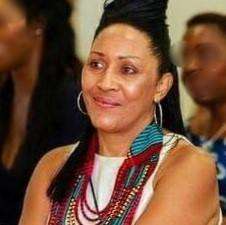'Racism begins as child abuse through grooming by raceophiles'
Professional Social Work magazine - 25 June, 2020
I am a qualified social worker and author of For the Love of a Mother (the Black Children of Ulster) recently nominated for a BLAC award. Being of mixed heritage, like many, racism has been a part of my whole life. I am passionate and dedicated in contributing to its eradication.
Having been brought up in Northern Ireland, in a predominantly white world and at the height of 'The Troubles’ in the 60s, I have a lived experience of being separated and treated unfavourably in terms of religion and the colour of my skin.
This has impacted my life to date and as I continue to educate myself and re-educate myself I have gained much knowledge. I say re-educate as I was once indoctrinated to hate the colour of my own skin and that of other black people.
Writing my book provided me with self-therapy and helped me to come to terms with much of my past. However, healing the lasting scars of racism and self-hate is an on-going journey.
This journey is not easy given the racism that prevails today as highlighted in the recent murder of George Floyd and those killed before and after him.
Embarking on a social work course provided me with new opportunities and I began finding new ways to counter the effects of racism. Over the years I began to acknowledge and accept the benefits of ‘reframing’.
Reframing is a technique used in therapy to help create a different way of looking at a situation, person, or relationship by changing its meaning. It helps us to look at situations from a slightly different perspective.
The essential idea behind reframing is that a person's point-of-view depends on the frame it is viewed in. When the frame is shifted, the meaning changes and thinking and behaviour often change along with it.
This practice has allowed me to think differently, and speak differently about racism and its origins. It has enabled me to reflect on how I was ‘groomed’ and taught to think about the colour of my skin in the most negative way.
It is not a question of whether you have been shaped by #raceophilia and participate in the forces of racism, rather how much you have been.
Racism
There is one race that is human and diverse.
Racism is a crime and so racists are those who commit crimes against humanity. Those who teach racism are in effect abusers who groom individuals through #raceophilia (an unnatural love of hating black people).
Raceophiles groom in ways that are similar to the ways in which paedophiles groom children for sex.
Similar grooming methods employed include manipulation, instilling fear and exposure to visual and live images of black people used as triggers of indoctrinated stimuli to encourage one to think and act in the desired abusive manner.
For instance, when watching movies featuring black people as a child, I was often made to feel humiliated or ashamed when my friends pointed to the black actors and back to me whilst laughing and sniggering.
When I asked why they did this, often the reply would be that their parents had told them negative things about black people.
Similar to the paedophile, some #raceophiles groom in secret and some openly groom where this is accepted practice.
For instance, media grooming the public with sublime racist language and terminology. This includes highlighting the colour of skin when a black person has committed a crime.
A high functioning #raceophile is one able to control their learned behaviour in front of others who do not accept that behaviour or those who would challenge this.
For instance, a team manager who makes subtle racist ‘jokes’ or uses subtle racist terms such as, ‘the pot calling the kettle black’. Low functioning #raceophiles include white supremacists and those in the police force (uniformed #raceophiles).
A low functioning #raceophile is one unable to control their conditioned responses to indoctrinated stimuli and are likely to act on that in various ways ranging from low level aggression to murder. The police officer who murdered George Floyd could be considered in this category.
As with all forms of abuse, the abused do not automatically go on to become abusers having been re-educated and breaking the cycle of abuse.
So to recap. Racism begins as child abuse through the grooming process of #raceophilia. The child being groomed to fear, mock, humiliate, abuse or possibly murder a black person.
As stated previously, the 'philia' in this context is not ‘love’ rather its meaning is similar to the 'philia' in paedophilia.
I believe racism needs to be recognised as a form of child abuse in order to protect children and enable them to have access to resources to recover.
Recognising racism in this way will ensure perpetrators (raceophiles) are held to account for their actions.
They need to have repercussions for perpetrating this child abuse and face the full force of the law. Like paedophiles, raceophiles need to be risk assessed and receive re-education and rehabilitative treatment.
I have submitted this neology for consideration in several dictionaries. The word Raceophilia can at present be found in the Urban Dictionary.
I have spoken with some key people in the social work field who feel the reframing of racism in this way is a strong and valid concept.
I am in the process of developing a PowerPoint presentation and aim to distribute this widely to those interested in exploring this concept further.
This article is published by Professional Social work magazine which provides a platform for a range of perspectives across the social work sector. It does not necessarily reflect the views of the British Association of Social Workers.

